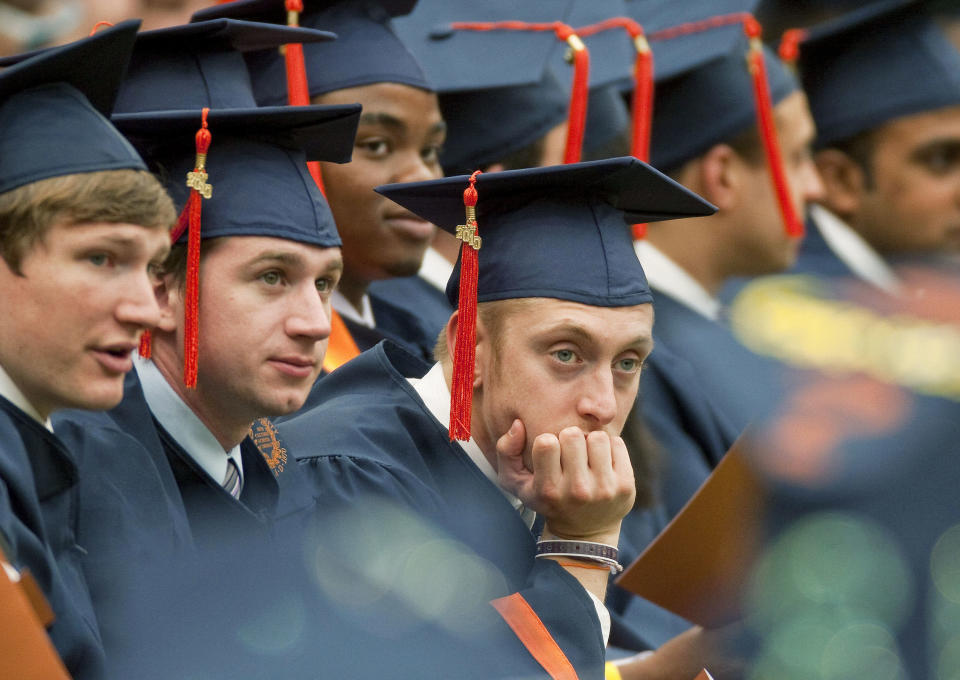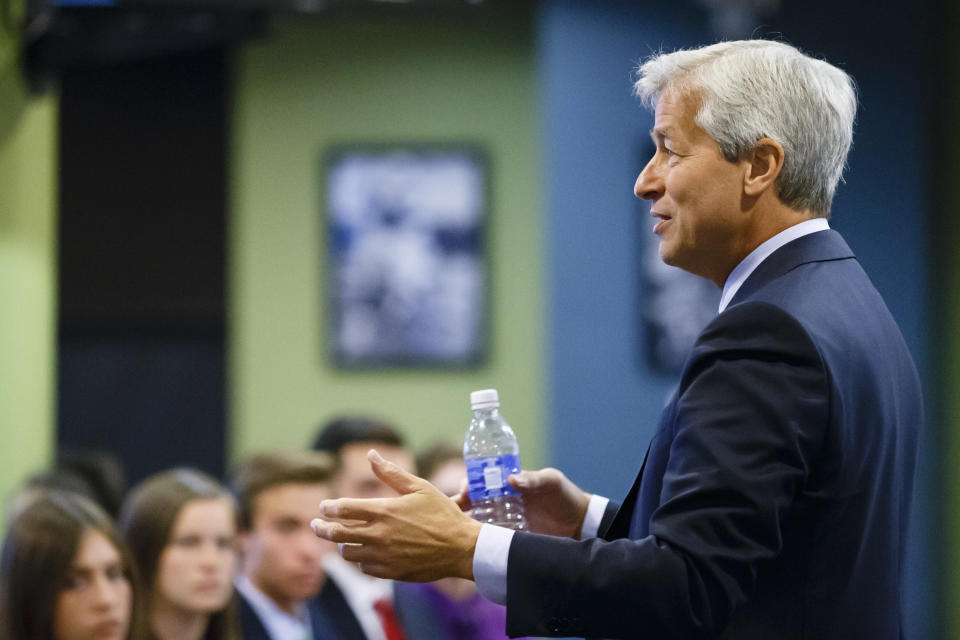Dimon: U.S. student loan debt is ‘now starting to affect the economy’
J.P. Morgan Chase (JPM) CEO Jamie Dimon is concerned that the $1.5 trillion student loan debt pile is “starting to affect” the economy, urging greater urgency to resolve the crisis.
“Irrational student lending, soaring college costs and the burden of student loans have become a significant issue,” Dimon wrote in his widely-read annual letter. “The impact of student debt is now affecting mortgage credit and household formation… Recent research shows that the burdens of student debt are now starting to affect the economy.”
Dimon highlighted a study by Fed economists from January that found that a $1,000 increase in student debt reduces homeownership rates by 1.8%.
Outstanding student loan balances have surged in real terms between 2005 and 2014, with the average student loan debt per capita for borrowers aged between 24 and 32 has doubling from $5,000 to $10,000.

Higher levels of student debt also had an adverse impact on consumer behavior in other areas, the researchers added, which could also hurt economic growth: “This finding has implications well beyond homeownership as credit scores impact consumers’ access to and cost of nearly all kinds of credit, including auto loans and credit cards.”
A student loan borrower now holds $28,650 in debt on average upon graduation, according to Student Loan Hero.
‘Government lending ... has not all been responsible’
Dimon warned that urgent action is needed to reform student loan lending.
One solution was to create better loan products — a possible play to bring student loan lending to the private sector.
“We would be well-advised to have more properly designed underwriting standards around the creation of student loans,” Dimon wrote. “Direct government lending to students has grown almost 500% over the last 10 years – and it has not all been responsible lending.”
Dimon suggested that “it would also be helpful for the government to disclose student lending programs as if they were accountable on the same basis as a bank. Addressing these factors would lead to far better, and healthier, student lending.”

A recent report in February by the Department of Education’s (DoE) independent inspector general (IG) argued for more accountability in federal student loan oversight.
In a scathing report, the IG laid out how the DoE’s Federal Student Aid program had not held loan servicers accountable, and that loan service representatives repeatedly failed to inform borrowers of repayment options while also miscalculating borrowers’ monthly payments for specific repayment options.
The federal government doesn’t disperse loans — the biggest student loan servicers at present are Navient, Great Lakes, Nelnet Servicing, and the Pennsylvania Higher Education Assistance Agency. They are supervised by the DoE.
Aside from Dimon, officials who were inside the U.S. student loan system are also calling for reform.
“The student debt crisis is more than a higher education policy issue,” former CFPB student loan ombudsman Seth Frotman told in front of a House committee earlier this month. “It is a significant — perhaps the most significant — consumer finance issue threatening our nation at this time.”
Aarthi is a writer for Yahoo Finance. Follow her on Twitter @aarthiswami.
Read more:
Jamie Dimon: Bad mortgage rules are holding back the U.S. economy
Jamie Dimon defends stock buybacks, calls them 'an essential part of capital allocation'
Jamie Dimon: Cybersecurity threats may be the 'biggest threat to the U.S. financial system'
Follow Yahoo Finance on Twitter, Facebook, Instagram, Flipboard, LinkedIn, YouTube, and reddit.
